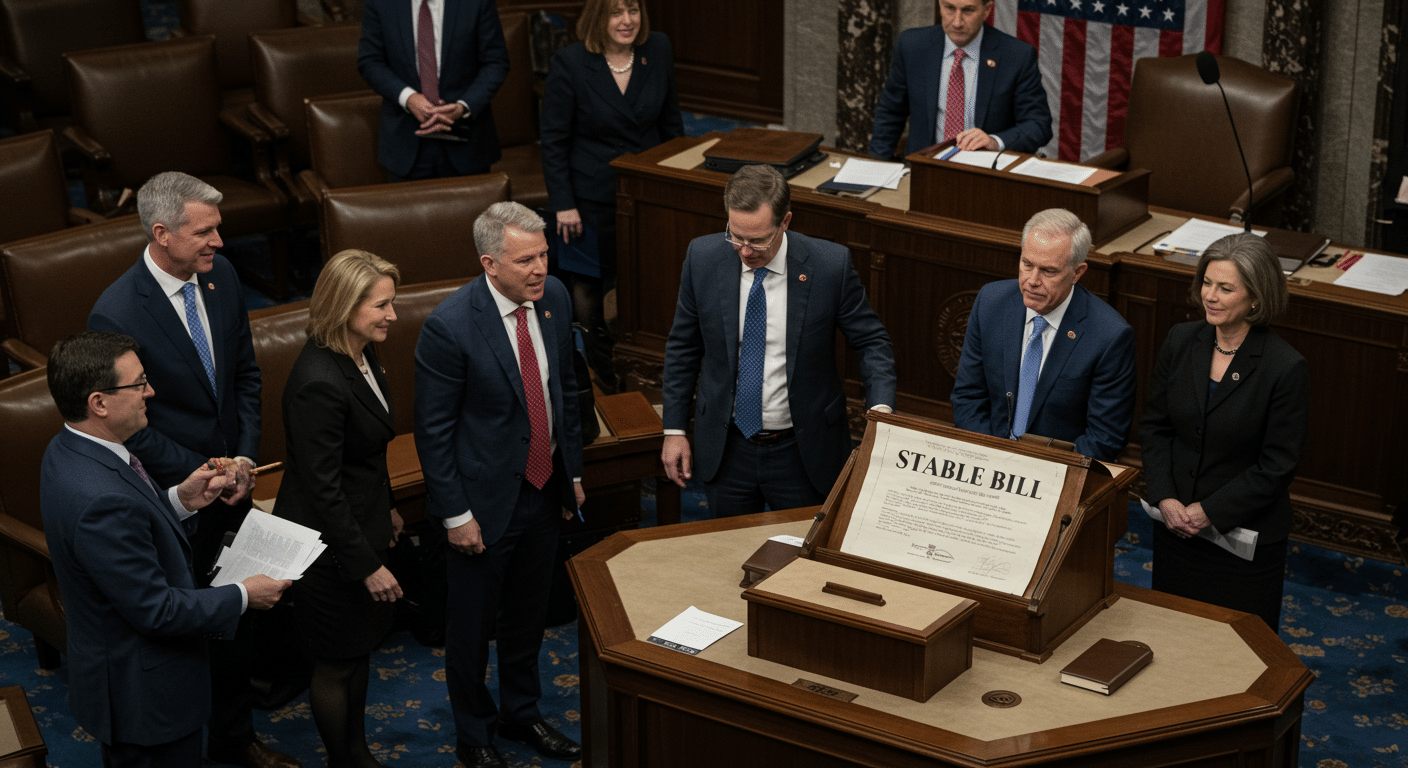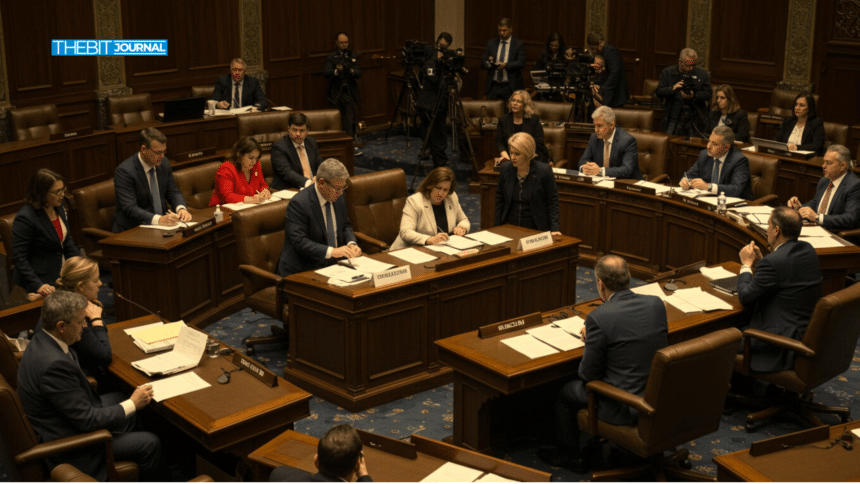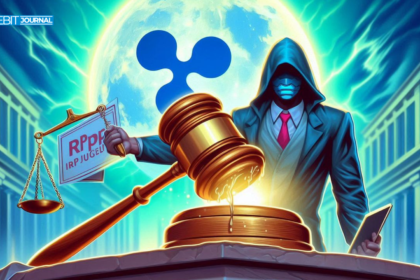The House Financial Services Committee has voted to proceed with legislation to regulate stablecoins. The bill, titled “Stablecoin Transparency and Accountability for a Better Ledger Economy” (STABLE), received bipartisan support. The legislation received 32 votes in support, while 17 lawmakers voted against it when it passed through a House Financial Services committee.
The proposed bill aims to establish clear standards for U.S.-issued stablecoins while increasing oversight of foreign stablecoin issuers. It outlines capital reserve requirements and mandates one-to-one backing of stablecoins to U.S. dollars. The bill establishes several anti-money laundering requirements while authorities work to create consistent regulatory frameworks.
Under the STABLE Act, foreign issuers have a two-year period to satisfy the requirements of U.S. regulatory systems. The issuers have an opportunity to fulfill comparable international standards, but they also have the option of using U.S. regulatory requirements. This move intends to bring consistency and accountability to stablecoin operations across both domestic and international markets.
STABLE Bill Draws Support and Opposition in the House
Representatives French Hill from Arkansas and Bryan Steil from Wisconsin co-authored the STABLE Act. The lawmakers pressed for regulatory standardization to protect the U.S. digital financial market’s position as a global leader. The bill acquired more support because blockchain technology showed promising developments in international payment systems.

By the hearing date, Republicans generally supported the proposition, while some Democrats demonstrated deep resistance to the plan. During the hearing, Rep. Maxine Waters condemned the proposed legislation because she identified potential ethical problems stemming from former President Donald Trump. The lawmaker advised that regulatory structures might be exploited for personal gain by members of the government or finance industries.
During the hearing members of the committee examined different amendments which included clauses regarding Trump family cryptocurrency investments and financial industry stabilizer measures. The legislators stressed both market transparency and non-biased policy when addressing these issues. The measure progressed to wider legislative assessment following the passage despite differing points of view between lawmakers.
Senate Pushes Forward with GENIUS Act as Alternative
On the Senate side, the Banking Committee has advanced its own stablecoin legislation. The “Guiding and Establishing National Innovation for US Stablecoin” or GENIUS Act differs from the House bill in key areas. It bars foreign-issued stablecoins from launching in the U.S. but permits their circulation in secondary markets.
Under the Senate’s proposed bill Treasury obtains the power to take action against foreign issuers who fail to comply. The House version differs from this latest proposal through its limited global involvement restrictions. Chamber officials must negotiate to produce a single legislative framework because their present approaches differ.
The Senate bill omits any provision that would provide foreign issuers a temporary compliance period while the House’s STABLE Act includes such an allowance for two years. A final law needs lawmakers to merge these different positions before approval. Federal versus state regulatory aspects are articulated differently in the separate versions of legislation.
Interest in Stablecoins Remains a Point of Contention
Lawmakers and industry leaders continue to debate whether stablecoins should offer interest to holders. The officials who resist this move fear harm to traditional banks via the process. Industry leaders join the debate against governmental opposition to stablecoin interest by stating such a policy would create market competition and enhance customer satisfaction.

Coinbase CEO Brian Armstrong substantiated his statements that on-chain interest capability would increase market drives toward innovation while boosting service quality. In his opinion, the prohibition of on-chain interest could restrict industry expansion and send the corresponding innovations to foreign lands. Armstrong asked officials to refrain from picking one business model as better than others.
According to Hill, both chambers of Congress have shared their support for this matter. The lawmakers gradually agreed on terms without requiring too many lengthy debates. The developing laws will most likely follow this emerging agreement between government officials.
FAQs
What is the STABLE Act?
The STABLE Act is a proposed law to regulate stablecoins, requiring dollar backing and anti-money laundering compliance.
What happens to foreign stablecoins under the bill?
Foreign issuers like Tether will have two years to comply with U.S. regulations or equivalent international standards.
How is the Senate’s GENIUS Act different?
The GENIUS Act prohibits foreign issuance but allows foreign stablecoins to trade in U.S. secondary markets.
Will stablecoin holders earn interest?
That remains undecided. Lawmakers are split on allowing interest to encourage innovation or avoid risks to traditional banks.
What are the next steps for the legislation?
The House and Senate must reconcile their bills before it can become law. Additional hearings are expected soon.
Glossary
Stablecoin – A type of cryptocurrency tied to a stable asset like the U.S. dollar to reduce price volatility.
Anti-Money Laundering (AML) – Legal standards to prevent financial crimes such as money laundering and terrorism financing.
One-to-One Backing – A reserve requirement ensuring each issued stablecoin is supported by an equivalent dollar value.
Secondary Market – A platform where previously issued stablecoins are bought and sold between investors.
Foreign Issuer – A company outside the U.S. offering stablecoins that may seek access to U.S. markets.
GENIUS Act – Senate’s version of stablecoin regulation aiming to limit foreign issuer participation in U.S. markets.
STABLE Act – House bill establishing reserve and regulatory standards for domestic and foreign stablecoin issuers.





























